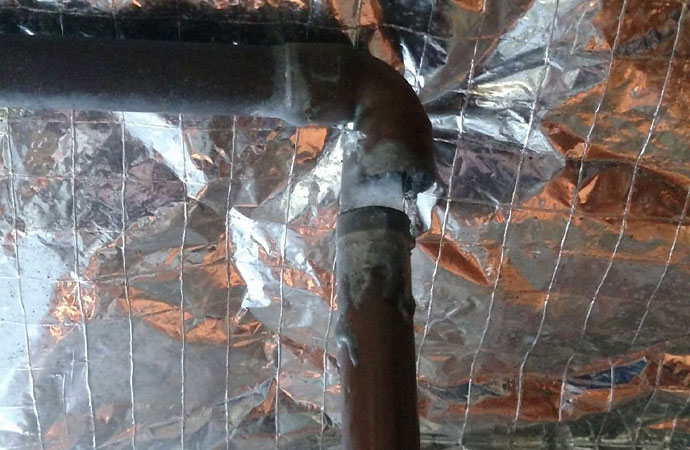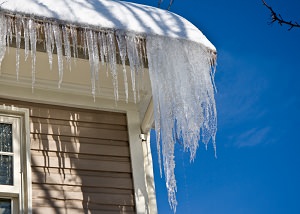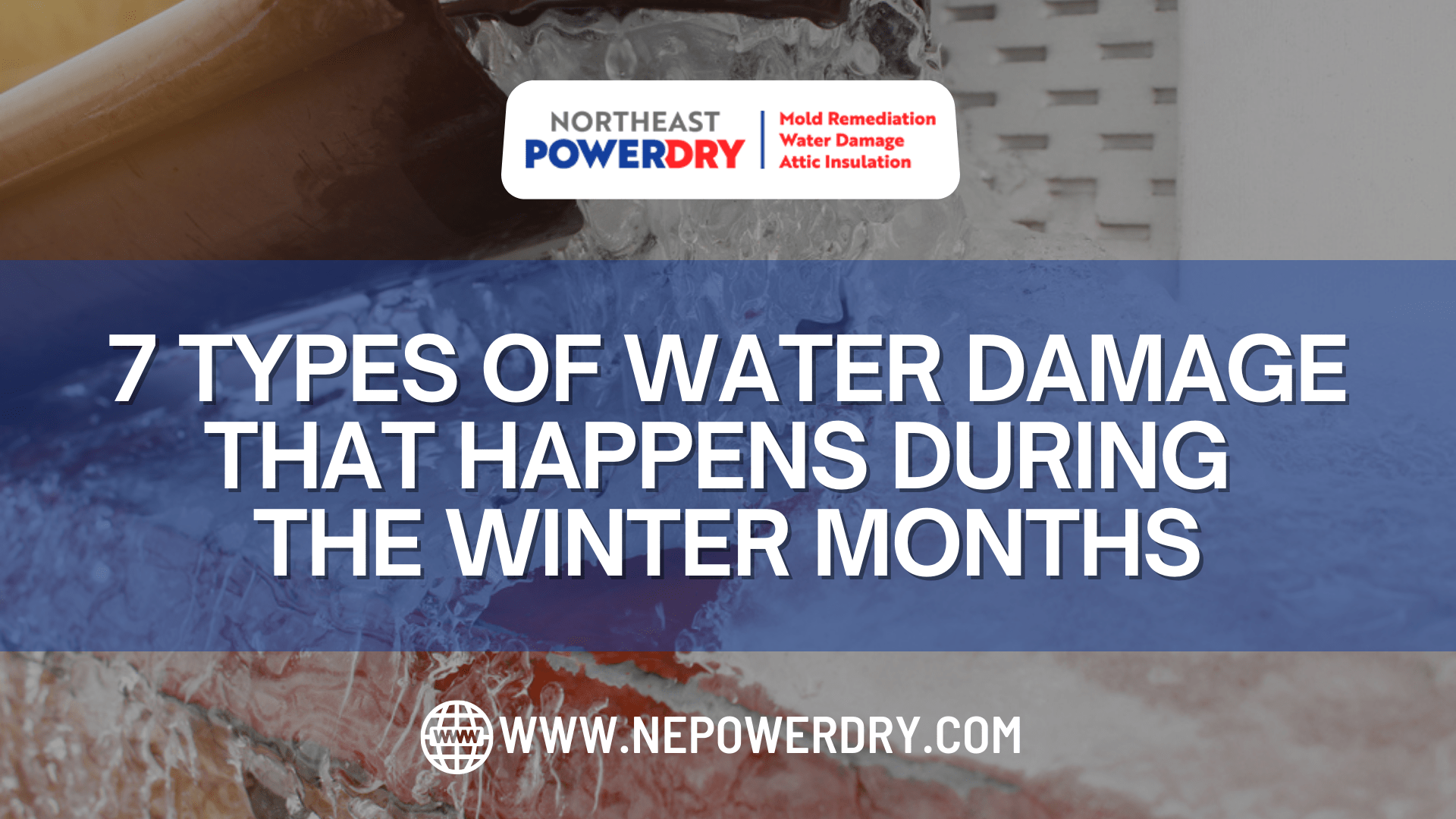As temperatures drop, your potential for water damage accidents on your property doesn’t. Frozen pipes, leaky water heaters, and blocked or dammed gutters can all end in an expensive mess. Even more difficult during the winter months is attempting to dry your property yourself. The best way to avoid water damage during winter months is to read up on various causes to learn how you can prevent them.
7 Types of Water Damage That Happens During The Winter Months
1. Frozen Pipes

Water freezes at 32 degrees Fahrenheit—a temperature common during winter. The water traveling through your plumbing has the potential to freeze if outside temperatures get that low. However, it’s unlikely to happen unless it drops far below freezing for a long period or overnight.
On those extremely cold nights, it’s important to take preventative measures to stop water from freezing in your pipes. One easy way to do this is by allowing a few faucets to drip. This will keep water moving through pipes and help relieve the pressure that could build and rupture.
2. Ice Dams

Ice dams can form when melting snow or ice freezes again while in the gutter. When water cannot properly flow down the drainage system, it can pool on the roof, seep into shingles and possibly reach the attic. The pooled water can also freeze in place, possibly damaging the roof. If water gets into the attic, it can damage structural material and catalyze mold growth.
Before an ice dam damages your roof, attic, or any other part of your house, properly vent the attic. Heat trapped in the attic could be causing snow to melt and pool. You should also inspect the roof and attic for any existing damage and get it repaired before winter.
3. Leaking Water Heater
Winter is hard on your water heater. It has to work more to heat the water in frigid temperatures, which means it has a greater risk of breaking down or leaking. This is especially true if your water heater is on the older side.
To avoid a messy cleanup and restoration, have your water heater checked by a professional. If you see any signs of damage, leaks, or strange noises coming from your unit, get it checked out as soon as possible to prevent water damage.
4. Melting Snow Around The House
You should clear out piles of snow from around your property. If left alone, snow can melt during sudden winter thaws. That water will need to go somewhere, and it’s better away from your home. Water can find its way through the soil and into your home’s foundation and/or basement.
When snow falls heavy, grab a shovel and push as much of it as you can away from the perimeter of your home. You should also try to clear excess snow from the roof for that same reason.
5. Ruptured Outdoor Water Lines

Indoor water lines aren’t the only ones vulnerable to winter weather. Your garden hose and sprinkler system can also freeze if any water is left in them from summertime use. You can easily avoid this by shutting off the water supply lines to the hose and sprinkler and properly draining them.
6. Poorly or Non-Insulated Pipes
Your garage, basement, and crawl space often get the brunt of winter weather. That means water lines near or around these areas are especially susceptible to freezing. You can avoid this by insulating these pipes. Install insulation if you also have indoor water lines that aren’t properly insulated or lack it completely.
7. Miscellaneous Water Sources
Pipes aren’t the only thing in danger of freezing during winter. Water valves in and outside your home can freeze and rupture as well. To help avoid disaster, drain outdoor water systems and then shut off water to outdoor valves during winter.
Frozen Pipes? Call Water Damage Restoration Company
If one or more of the types of water damage during winter strikes your home, you need to act fast to prevent further damage. Call Northeast Power Dry. We’re a professional water damage restoration company serving communities in central New Jersey. We specialize in water removal and drying services. We’re available 24/7—call us if you’re having a water damage emergency.
Comments are closed.


Recent Comments